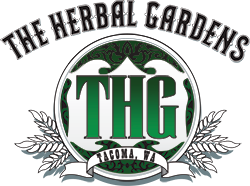Most Patients Agree Doctors Aren’t a Reliable Source for Weed Info, Survey Finds
The vast majority of patients wouldn’t turn to their doctors for advice about medical marijuana, according to a new survey published in The Journal of Primary Care & Community Health.
Researchers from the University of Vermont polled 1,009 primary care patients who were seeing physicians in the Green Mountain State. The survey asked patients to self-report if they used CBD or THC products and whether they believed that these products could effectively treat specific medical conditions. The respondents were also asked whether they believed that their primary care provider was a good source of information about cannabinoids.
Nearly half (45 percent) of the respondents said that they had used some form of cannabinoid within the previous year. 21 percent said they had used CBD within the past month, and 19 percent reported using THC products. The majority of patients said that they found medical marijuana to be either “very” or “somewhat” helpful in treating a wide range of symptoms, including depression, insomnia, nausea, chronic pain, and migraines.
Only 18 percent of patients said they believed that their doctor was a good source of knowledge regarding the benefits or risks of cannabis, however. The study authors explain that “while cannabis has been medically legal in Vermont since 2004 and recreationally legal since 2018 there has been minimal published research regarding the use and practices in the adult population. This gap in understanding results in primary care providers having difficulty navigating conversations surrounding cannabinoid use.”
“The results of our research pose important questions that should be investigated in the future,” the study concludes, according to NORML. “Considering patients feel that their providers may not be an adequate source of information regarding cannabinoids, it would be interesting to explore the perceived knowledge and perceptions of cannabinoids by primary care providers, to identify opportunities for improvement.”
Although the study only considers the viewpoints of primary care patients in Vermont, studies from other states indicate that physicians’ lack of cannabis knowledge is a national issue. Cancer patients and military veterans have reported that their doctors are unwilling or unable to discuss medical marijuana with them, even in states where it is legal. A recent study also found that although three-quarters of oncologists believe cannabis can help treat cancer, over half feel uncomfortable recommending medical marijuana to patients.
Last year, a survey found that 91 percent of hospice professionals believed medical marijuana treatments are effective, but most doctors still claim ignorance when it comes to weed. In a recent op-ed in a medical journal, a leading Stanford physician called out the medical community for widespread ignorance about the medical uses of cannabis. But for doctors who do want to learn about cannabis, they must do so on their own. Another study found that 60 percent of medical students said that they received absolutely no training about medical marijuana during their education.
To resolve the issue, the authors of the Vermont study recommend that additional research should be conducted to explore “how to assist primary care providers in having informed conversations about the risks and benefits of cannabis, especially in the setting of chronic pain.”
